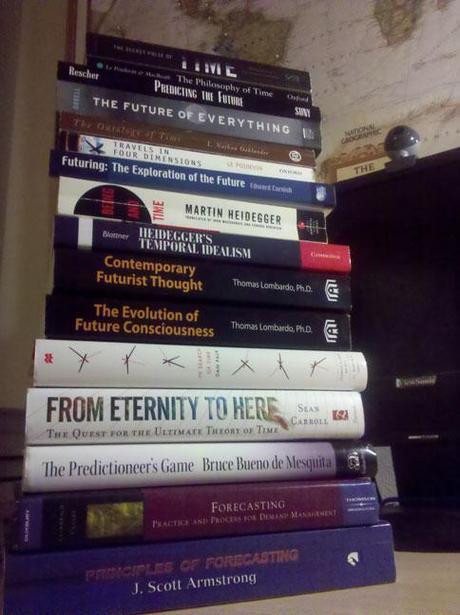
For the month of June the theme for Realizing Resonance is The Future! In my day job I forecast the future, even if only for narrow slice of reality, so this is an exciting topic for me, and I will try to add at least one new article about forecasting. Beyond that, I love thinking and writing about the Philosophy of Time more generally, and this was the theme for Realizing Resonance in January. Back then I posted an article titled, The Future is Not Real, in which I exposed my sympathies to the open future theory of time. The future is not an actual destination in time, rather it is a conceptual idea, or a special type of thought experiment, regarding a potentially realizable, but not yet realized, present state-of-affairs.
Armed with my definition of the future and its place in the reality of time, I am off to Vancouver B.C. next month for the WorldFuture 2011 Conference. WorldFuture is an annual meeting of intrepid Futurists, about one thousand strong, from around the globe, ready to discuss the future of science, technology, health, and business, as well as the social, political, and environmental changes affecting the world. The conference theme for 2011 is “Moving from Vision to Action”, and this will be my first time attending. I cannot wait.
So my Resolution to Read for June is….
Contemporary Futurist Thought by Thomas Lombardo
In his book, Contemporary Futurist Thought, Thomas Lombardo discusses science fiction, future studies, a social scientific discipline that attempts to forecast long range future trends, and other contemporary theories of the future. I have already read the book’s section on science fiction, and I have to say that it is a wonderfully insightful review and resource on the subject. Contemporary Futurist Thought is actually a companion to Lombardo’s first book on the subject, The Evolution of Future Consciousness: The Nature and Historical Development of the Human Capacity to Think about the Future, an excellent read that I finished last year. Lombardo’s second book continues the theme that our thoughts and ideas about the future, throughout history and into the present, have been characterized by the interplay of hope and fear, of the Apollonian versus the Dionysian. I am excited to get further into the book and learn about the modern field of future studies, as well as the common theories and visions of the future.
Happy Readings!
Jared Roy Endicott
 Subscribe in a reader
Subscribe in a reader

